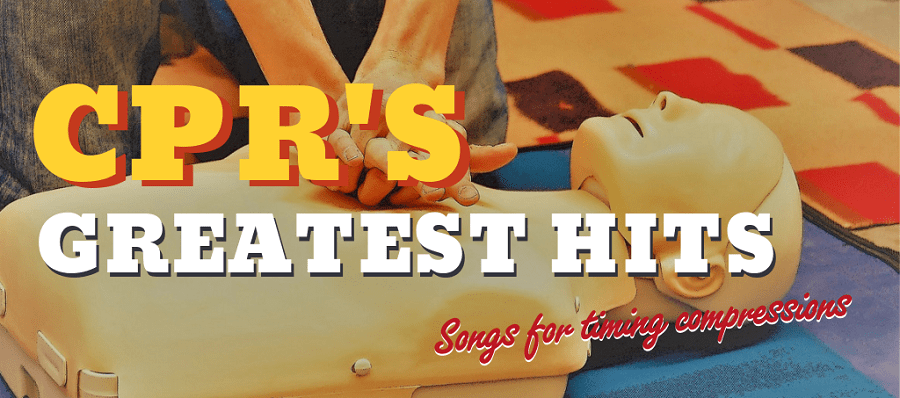
CPR guidelines recommend a chest compression rate of 100-120 compressions per minute, or roughly 2 per second. Being able to stick to this compression rate is crucial for the effectiveness of CPR.
During CPR training, students are often taught to hum a tune such as the Bee Gees’ Stayin’ Alive, to achieve the right tempo for chest compressions. But did you know that there are hundreds of other songs with the same tempo? Songs between 100 and 120 beats per minute are within the right range.
So, for those who aren't fans of 70's music or the Bee Gees, here's a list of some other songs you can use:
- Achy Breaky Heart – Billy Ray Cyrus
- Baby Shark Dance – Pinkfong
- Beat It – Michael Jackson
- Call Me Maybe – Carly Rae Jepsen
- Can’t Stop the Feeling – Justin Timberlake
- Come On Over – Christina Aguilera
- Crazy – Gnarls Barkley
- Crazy in Love – Beyonce
- Dancing Queen – ABBA
- Don’t Stop – Fleetwood Mac
- Don’t Stop Believin’ – Journey
- Gettin’ Jiggy Wit It – Will Smith
- Girls Just Want to Have Fun – Cyndi Lauper
- How to Save a Life – The Fray
- I Don’t Feel Like Dancin’ – Scissor Sisters
- I Will Survive – Gloria Gaynor
- I’m Gonna Be (500 Miles) – The Proclaimers
- Island in the Sun – Weezer
- Just Dance – Lady Gaga
- Larger Than Life – Backstreet Boys
- Macarena – Los Del Rio
- MMMBop – Hanson
- Save Tonight – Eagle Eye Cherry
- Short Skirt/Long Jacket – Cake
- The Imperial March (Darth Vader’s Theme)
- The Shoop Shoop Song – Cher
- The Sign – Ace of Base
There’s also Queen’s Another One Bites the Dust, however that’s probably not a great choice while performing CPR!
Getting the compression speed right is important, but don’t forget about compression depth as well. It’s important to reach a depth of around 1/3 of the chest height, so concentrate on this while you hum away in the background!